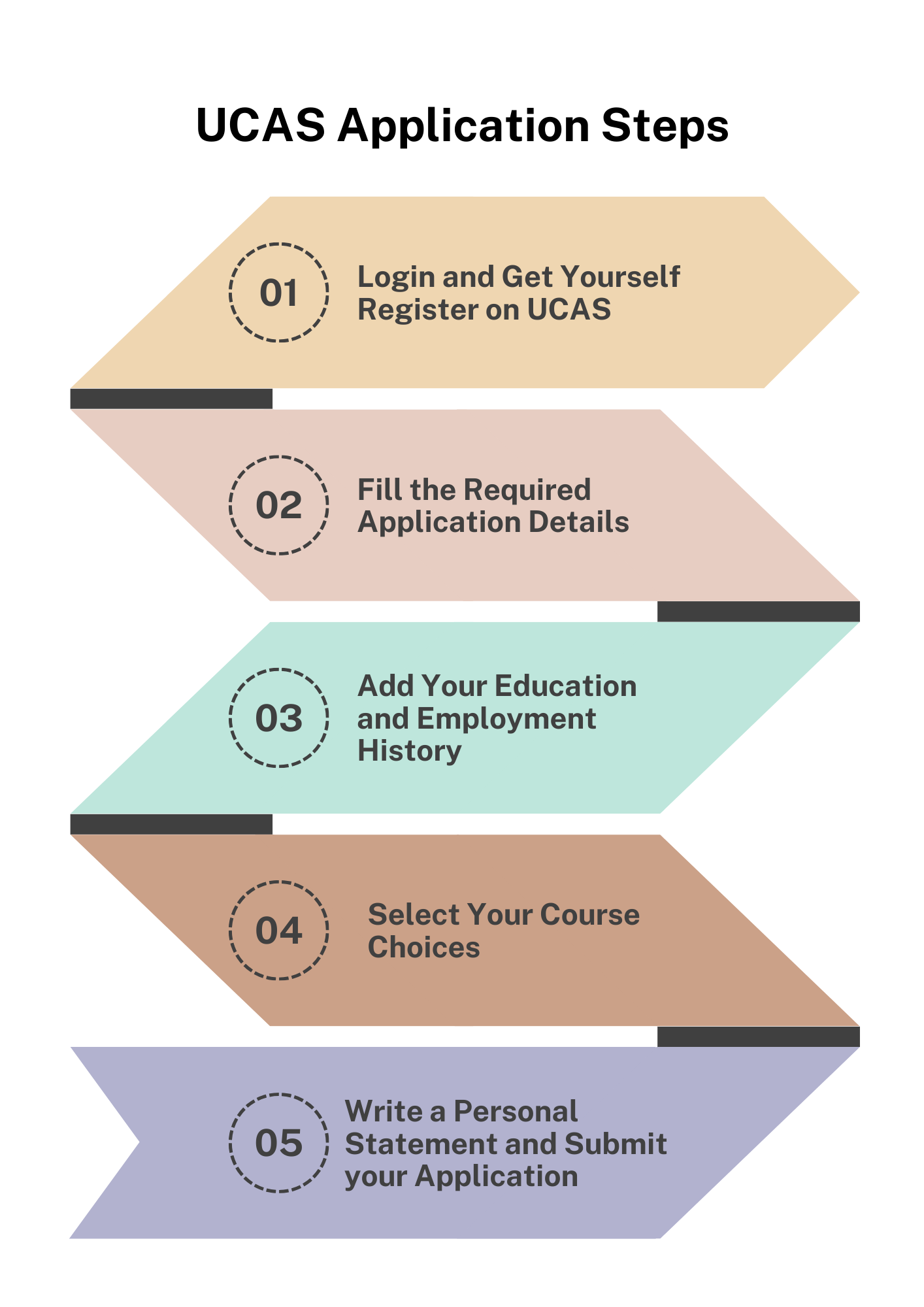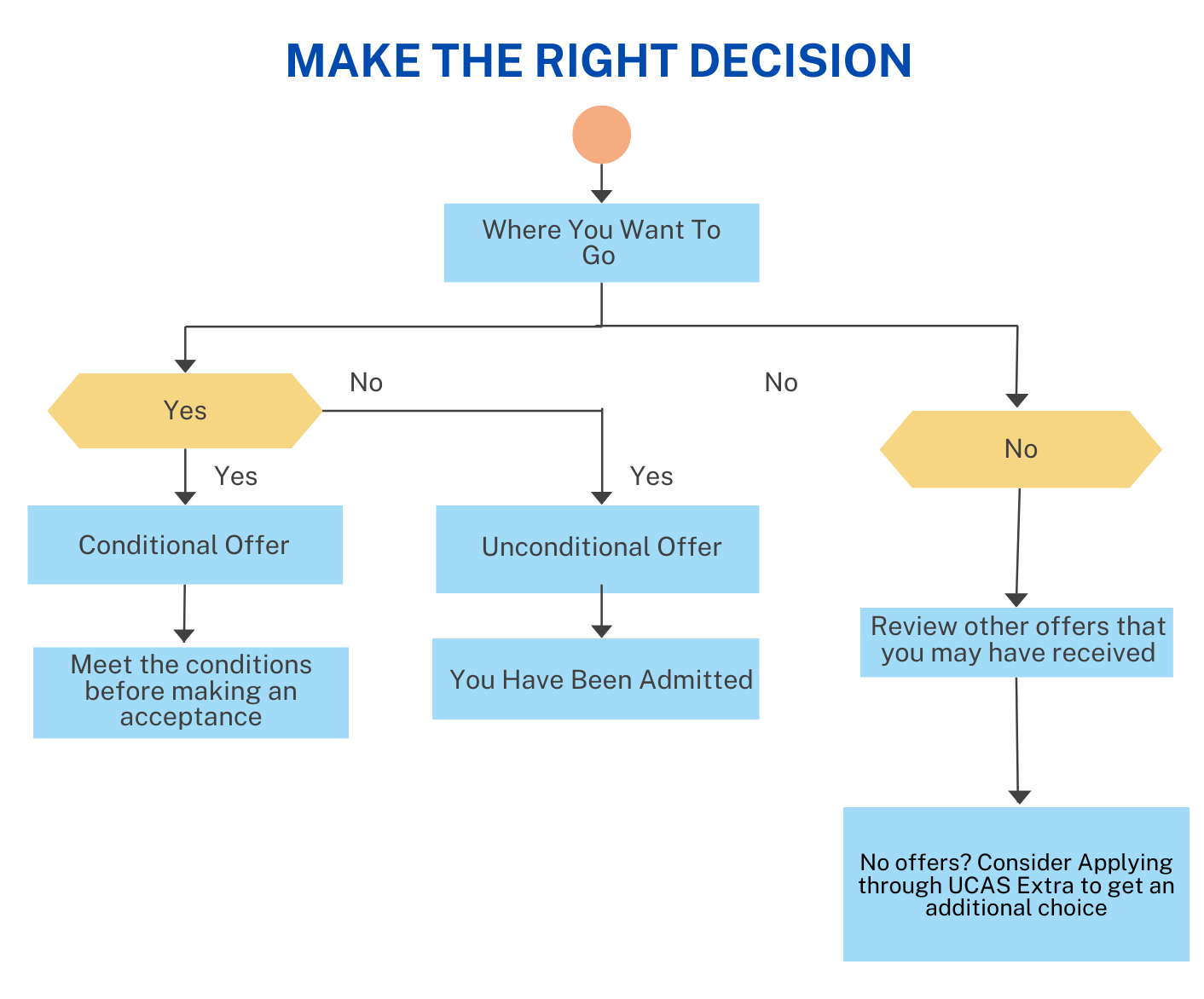
Content Curator | Updated On - Nov 15, 2024
UCAS application or Universities and College Admission Service is a common application portal to apply for undergraduate programs in UK universities. Some UK universities also accept applications via UCAS for postgraduate admissions. An application fee of 28.50 GBP is required to apply to undergraduate programs via UCAS. You can choose up to 6 courses while applying through UCAS.
- Applications for all undergraduate courses are due on January 29, 2025, except for medical courses.
- Those failing to receive admission offers for all the remaining choices may apply via UCAS extra by the end of June.
- Postgraduate applicants may submit their UCAS application between June and July for courses beginning in September and October.
- However, applying at least 6 months before course commencement is advisable to get enough time for travel arrangements, accommodation, and finances.
Also Check: UCAS Points

Also Check: Scholarships in UK for Indian Students
UCAS Application Process
International students can follow the below steps to apply for admission through UCAS:
- Get yourself registered in the UCAS Hub and answer all the registration questions.
- Fill in your personal details.
- Add details of your prior education whether you are holding or waiting for results.
- Mention details of resit (if any).
- Add your employment history including paid employment with company name, location, job role, and work experience.
- Leave the section blank if you don't have paid work experience.
- Select up to 5 courses from the given choices.
- Write a 4,000 characters long or 500-1000 words UCAS personal statement mentioning your work experience, skills and why you wish to study with a particular university or college in UK.
- Finalize your application and click submit.
- Add a reference letter issued by faculty, employer, or anyone who knows you academically.
- Pay the application fee.
UCAS Application: Step to Follow After Applying
Now you have submitted your application, there are further steps that you must be aware of. Keep track of your application status by regularly visiting the UCAS website or UCAS Hub and following the mentioned steps:
- Track your UCAS UG application using the UCAS track.
- Make changes to your application if required. This may include change in address, phone number, and other personal details such as date of birth, passport number etc.
- You may be invited for an interview before the final decision is made.
- Wait for the admission decision, which can be either conditional or unconditional. You can expect your decision by mid-May for the January deadline, and by mid-July for the June deadline.
- After receiving the offer, you must confirm your admission by the given timeframe to avoid further delay In receiving the CAS letter.
- After receiving your CAS letter, you may apply for a UK student visa.
UCAS Application: How To Reply Your Offer
Upon receiving the final decision for your application, you must reply within a given timeframe by signing in to the UCAS application.

Types of Reply
Those receiving an unconditional offer must reply immediately to confirm their place. If you receive a conditional offer, you must meet the conditions before making confirmation for admissions. Following are the types of replies that can make:
- Firm acceptance: Those holding unconditional or conditional offers must confirm their admissions as soon as possible.
- Insurance acceptance: Applicants with conditional offers may consider the second choice with lower conditions. This is only possible if you couldn't meet the conditions for firm choice.
- Decline: You must accept a firm choice or insurance choice and decline rest of the offers that you may receive.
Types of Admission Offers
Following are the types of admission offers that one can expect after applying through UCAS:
- Unconditional offer: You are accepted for admissions.
- Conditional offer: You can confirm your admission by meeting some conditions.
- Conditional firm and Conditional insurance: You have selected the first and second choice, and you can be admitted in the first choice if all conditions are met. If you fail to meet the conditions for the first choice, you might meet the conditions for your second choice.
- Conditional firm and unconditional insurance: You can be admitted for first choice if all conditions are fulfilled. If not, you will be directly admitted to the second choice without conditions.
Upcoming Reply Dates for UCAS
Following are the upcoming dates to reply for your admission offer:
- Those receiving a decision on or before May 14, 2025 must reply by June 4, 2025.
- Applicants holding an offer on or before July 17, 2025 must confirm their acceptance by July 23, 2025.
Consider the above-mentioned details before planning to apply for admissions in the UK using UCAS portal. Write a detailed personal statement mentioning your education background and prior experiences to stand a chance during admissions. You must also submit a letter of reference from a faculty or academic advisor while applying for admission.
FAQS
Ques. What are the upcoming UCAS deadlines?
Ans. January 29, 2025 is the upcoming UCAS deadline to apply for all undergraduate programs except medical courses. The deadline for UG medical courses was October 15, 2024.
Ques. Can I apply for UCAS without IELTS?
Ans. One can apply via UCAS without IELTS if they achieve at least 70% in Class 12th CBSE or CISCE English exam.
Ques. Can we apply to the UK without UCAS?
Ans. You can apply directly to the university if you don't wish to apply using the UCAS portal. However, very handful of universities offer this alternative. Hence, you are advised to check before applying directly to any university in UK.
Ques. Is it compulsory to apply through UCAS?
Ans. Since the majority of universities in UK accept UCAS applications for UG, you must apply for admissions using UCAS. There are very few universities in UK that may accept your application without UCAS.















1598559075.png?tr=w-305,h-145,c-force?h=175&w=350&mode=stretch)

1599027946.png?tr=w-305,h-145,c-force?h=175&w=350&mode=stretch)






Comments